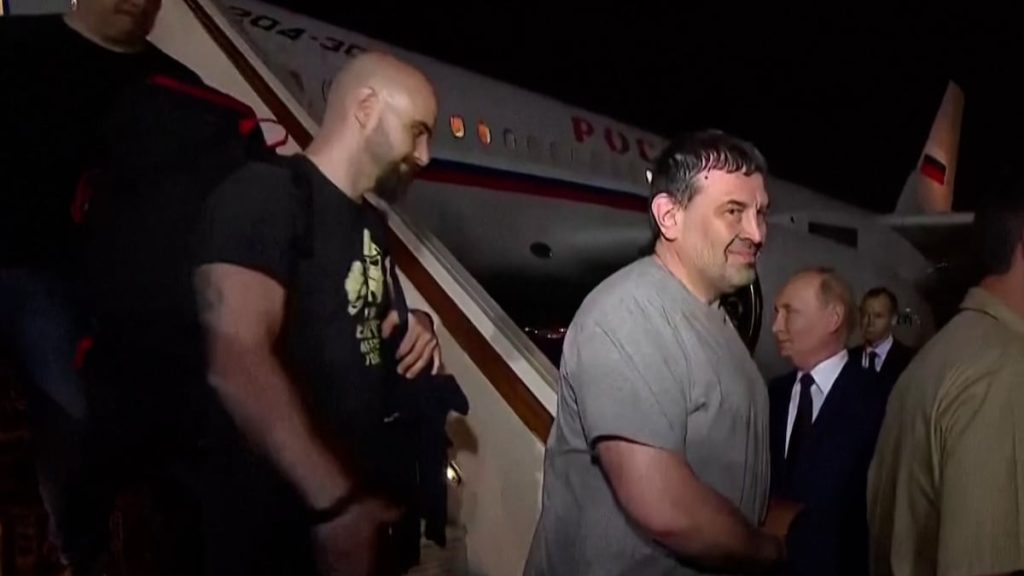The Polish General Prosecutor’s Office has formally charged journalist Pablo González with alleged espionage, following his release on August 1st as part of a prisoner exchange in Poland, according to the Public Ministry in the country. González was detained on February 28, 2022, near the border with Ukraine while covering the Ukrainian conflict, and had not been formally charged until now. He remained in custody from March 2, 2022, to July 31, 2024. The Polish Prosecutor’s Office released a statement on Wednesday announcing that on August 9, 2024, the prosecutor from the Department against Organized Crime and Corruption in Lublin filed charges against González for espionage under Article 130.2 of the Penal Code, which carries a sentence of 3 to 15 years in prison.
The accusations against González include allegedly providing information to Russian intelligence services from April 2016 to February 2022, in Przemysl, Warsaw, and other locations in Poland where the journalist was present, which could have caused damage to Poland, a NATO member. The prosecutor’s office attributes activities such as the acquisition and transmission of information, the dissemination of disinformation, and conducting operational reconnaissance. It is noted that Pablo González was born in Moscow in 1982, holds dual Spanish and Russian nationality. González was released on August 1st after being accused of spying for the Kremlin in February 2022, as part of a prisoner exchange agreement between the US, its European allies, and Russia. Russian President Vladimir Putin personally welcomed González and others released by the West in a ceremony at Moscow airport. The prisoner exchange also led to the release of Evan Gershkovich, the Moscow correspondent for The Wall Street Journal, who was sentenced to 16 years in prison by a Russian court in July.
The situation is particularly concerning due to its proximity. Stay informed by subscribing. CONTINUE READING
Overall, the case illustrates the tensions and complexities involved in international relations and the challenges faced by journalists covering conflict zones. The allegations of espionage and the subsequent charges against Pablo González highlight the risks journalists face in their work, particularly when reporting on sensitive issues such as armed conflicts and political disputes. The role of the media in providing accurate information to the public and holding those in power accountable is essential, but can also expose journalists to risks, as seen in this case. The prisoner exchange that led to González’s release also raises questions about the mechanisms and motivations behind such agreements between countries.
The formal accusations against González by the Polish Prosecutor’s Office will likely lead to a legal process in which the journalist will have to defend himself against the charges of espionage. The potential consequences for González, if found guilty, include a lengthy prison sentence, adding to the already significant ordeal he has faced during his detention and imprisonment in Poland. The case also sheds light on the intricacies of international diplomacy, as evidenced by the prisoner exchange that facilitated González’s release and its broader implications for relations between the countries involved. Moving forward, the legal proceedings and possible outcomes of the case will be closely monitored by international observers, human rights organizations, and media outlets.
In a broader context, the case of Pablo González serves as a reminder of the importance of press freedom and the protection of journalists in carrying out their work. The allegations of espionage against González and his subsequent imprisonment raise concerns about the treatment of journalists in conflict zones and the potential risks they face while reporting on sensitive issues. It is essential for governments to respect the rights of journalists to freedom of expression and information, as enshrined in international human rights instruments, and to ensure their safety and well-being while carrying out their professional duties. The case also underscores the need for transparency and accountability in legal proceedings involving journalists accused of wrongdoing, to uphold the principles of justice and fairness in such cases.


